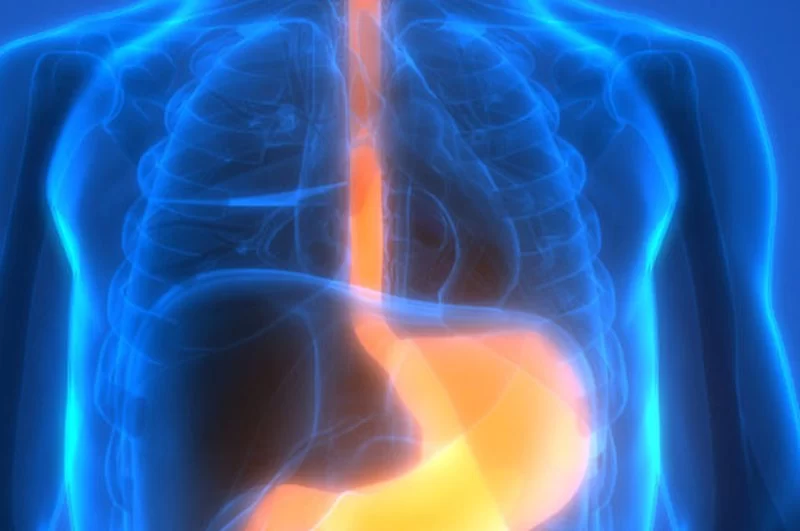
Can Bad Oral Hygiene Cause Stomach Problems?
Most people think brushing and flossing are only about keeping a bright smile. But what if your oral hygiene habits could also affect your stomach health? Recent studies suggest that bad oral hygiene can indeed cause stomach problems, linking oral bacteria to digestive disorders, inflammation, and even chronic gut imbalances. Understanding this connection can help you protect both your mouth and your gut.
The Science Behind the Oral-Gut Connection
1. How Oral Bacteria Travel to the Gut
Your mouth is home to billions of bacteria—some beneficial, others harmful. When oral hygiene is neglected, harmful bacteria multiply in dental plaque and gum pockets. These bacteria can enter the digestive tract every time you swallow, where they may disrupt the natural balance of the gut microbiome. This imbalance can contribute to issues like bloating, indigestion, or even infections in the digestive tract.
2. Inflammation as the Common Link
Poor oral hygiene often leads to gum disease, an inflammatory condition that affects the tissues around your teeth. When inflammation in the mouth becomes chronic, it can spread systemically, impacting the gut lining and immune response. This “inflammatory chain reaction” can make your digestive system more sensitive, increasing the risk of gastritis or irritable bowel syndrome (IBS).
From the Mouth to the Stomach: What Really Happens
1. Periodontal Bacteria and Digestive Disorders
Research from leading dental universities in the U.S. has found that bacteria responsible for periodontitis (severe gum disease) have also been discovered in the stomachs of patients with chronic gastritis. This suggests a direct route where oral pathogens can contribute to inflammation or ulcers within the digestive system.
2. The Role of Helicobacter pylori
Helicobacter pylori (H. pylori), the bacteria linked to stomach ulcers, can sometimes live in dental plaque. If left untreated, poor oral hygiene provides a reservoir for reinfection—even after antibiotic therapy. This means that neglecting oral care may prevent full recovery from stomach infections.
3. Real-Life Example: Sarah’s Story
Sarah, a 42-year-old from Oregon, struggled with chronic bloating and stomach discomfort. After several medical tests, her doctor noticed recurring gum inflammation and referred her to a dentist. Within six months of professional cleanings and improved home care, Sarah’s stomach issues dramatically subsided. Her experience highlights how oral hygiene can have unexpected benefits beyond the mouth.
Common Stomach Problems Linked to Poor Oral Hygiene
1. Acid Reflux and Bad Breath
Acid reflux can both stem from and worsen poor oral health. When bacteria thrive in the mouth, they can affect saliva production and digestive enzymes, leading to reflux symptoms. Similarly, reflux can erode tooth enamel, creating a cycle of discomfort between the mouth and stomach.
2. Digestive Infections and Gut Imbalance
When oral bacteria enter the gastrointestinal tract, they can compete with beneficial gut flora. This imbalance may cause constipation, diarrhea, or nutrient absorption issues. In severe cases, individuals with compromised immune systems may even develop gastrointestinal infections triggered by oral bacteria.
3. Weak Immunity and Chronic Fatigue
Chronic oral infections continuously stimulate the immune system, making the body less responsive to other threats. This constant state of alert can contribute to fatigue, decreased energy, and an overactive inflammatory response in the gut.
Preventive Measures for a Healthy Mouth and Stomach
1. Maintain a Consistent Oral Care Routine
Brushing twice daily with fluoride toothpaste, flossing, and using an antibacterial mouthwash can reduce harmful bacteria. Regular professional cleanings remove plaque and tartar where bacteria hide, lowering your overall bacterial load.
2. Eat for Both Oral and Gut Health
Foods rich in probiotics (like yogurt and kefir) and fiber (like leafy greens and whole grains) promote balance in the digestive system. At the same time, limiting sugar intake helps prevent oral bacterial overgrowth and cavities.
3. Stay Hydrated and Avoid Tobacco
Water helps wash away food particles and supports saliva production—a natural defense against oral bacteria. Avoiding tobacco reduces the risk of both gum disease and gastrointestinal inflammation.
4. Regular Dental Visits Matter
Seeing a dentist every six months can identify early signs of gum disease or infection that might otherwise go unnoticed. A dentist can also spot clues about digestive health through signs like enamel erosion, dry mouth, or unusual tongue coatings.
The Role of Dental Professionals in Whole-Body Health
Modern dentistry no longer focuses solely on teeth—it views the mouth as an essential gateway to overall health. Dental professionals often collaborate with gastroenterologists to uncover how oral health influences digestion. Addressing oral inflammation early may prevent systemic problems later.
In the U.S., clinics like Family Dentistry Online emphasize holistic care that connects oral and digestive health. Patients are encouraged to view their dental visits as a part of maintaining total wellness, not just aesthetic smiles.
When to Seek Help
If you experience chronic bad breath, bleeding gums, or recurring stomach issues, it might be time to look beyond your diet. Persistent oral inflammation or infections could be contributing factors to digestive discomfort. Dental professionals can perform simple assessments to identify hidden bacterial sources and recommend treatment before problems escalate.
Bringing It All Together
The connection between oral hygiene and stomach problems is more than a coincidence—it’s a biological reality. The bacteria in your mouth can shape your gut health, and the choices you make daily can either support or harm your digestive balance. By caring for your mouth, you’re also caring for your gut and your overall well-being. For expert guidance and personalized recommendations, visit Family Dentistry Online to discover services tailored to your oral and digestive health needs.







 Dental Starz4.0 (24 review)
Dental Starz4.0 (24 review) Jennifer Cha, DMD, MS5.0 (5 review)
Jennifer Cha, DMD, MS5.0 (5 review) Quantum Dental Group4.0 (65 review)
Quantum Dental Group4.0 (65 review) David Lee0.0 (0 review)
David Lee0.0 (0 review) Sunbrite Dental4.0 (1409 review)
Sunbrite Dental4.0 (1409 review) Kellyn Hodges Orthodontics4.0 (301 review)
Kellyn Hodges Orthodontics4.0 (301 review) The Importance of Oral Health Education During Pregnancy for a Healthy Pregnancy
The Importance of Oral Health Education During Pregnancy for a Healthy Pregnancy Best Tips for Brushing Your Teeth Properly for Healthy Gums: Essential Techniques for Oral Health
Best Tips for Brushing Your Teeth Properly for Healthy Gums: Essential Techniques for Oral Health Why Skipping Dental Checkups Can Lead to Bigger Oral Health Problems
Why Skipping Dental Checkups Can Lead to Bigger Oral Health Problems Advantages of Porcelain Dental Restorations
Advantages of Porcelain Dental Restorations How Can Diabetes Cause Tooth and Gum Problems? Preventing and Managing Oral Health Issues
How Can Diabetes Cause Tooth and Gum Problems? Preventing and Managing Oral Health Issues Healthy Habits for Promoting Good Oral Health and Hygiene: Tips for a Healthy Smile
Healthy Habits for Promoting Good Oral Health and Hygiene: Tips for a Healthy Smile